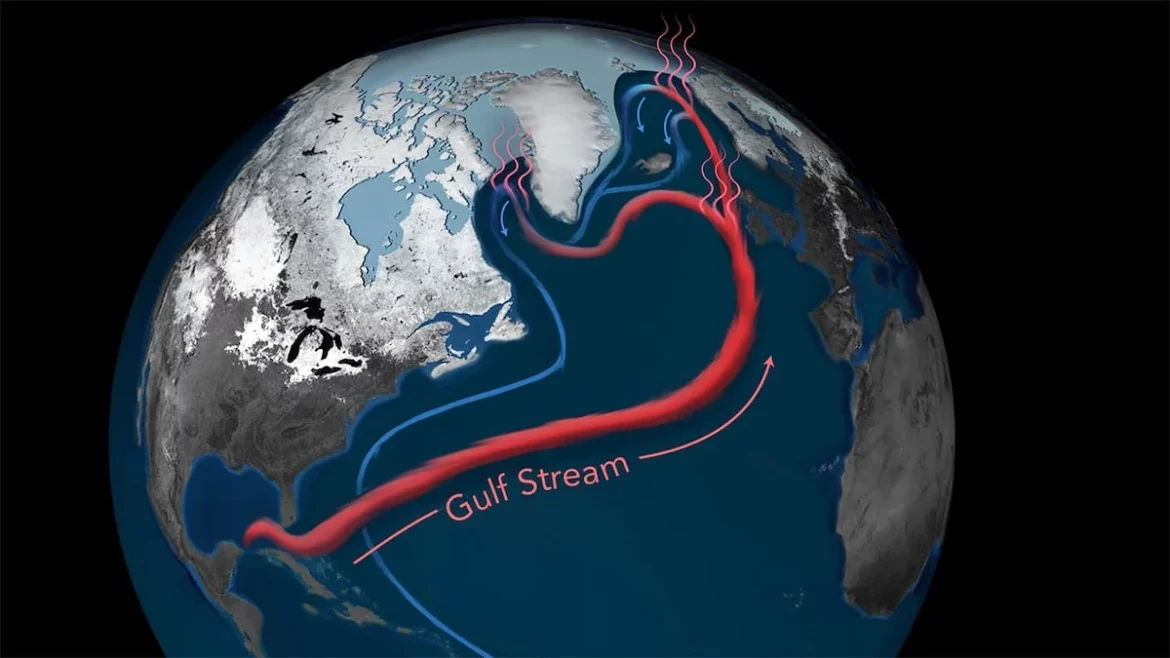A new study has confirmed that the Gulf Stream really is weakening, a finding which has profound implications for one of the biggest weather systems on our planet.
Researchers from the Woods Hole Oceanographic Institution and the University of Miami looked at four decades of data from the Florida Straits, including measurements of the volume of seawater transported through the region in that time.
Among other things, they found that Gulf Stream transport has decreased by about 4 percent over the past 40 years, which they describe as the first “conclusive, unambiguous observational evidence” of a slowing. Though the underlying reasons weren’t assessed as part of the study, there’s a 99 percent chance that this weakening isn’t a random event, the researchers say.
“This is the strongest, most definitive evidence we have of the weakening of this climatically-relevant ocean current,” says physical oceanographer Chris Piecuch, from the Woods Hole Oceanographic Institution.
“While we can definitively say this weakening is happening, we are unable to say to what extent it is related to climate change or whether it is a natural variation.”
Read also: Mass death of Amazonian dolphins raises fears for vulnerable species
According to reports, the Florida Straits are a good showcase for the effects of the Gulf Stream, which flows out from the Gulf of Mexico, around Florida, up the east coast of the US, and then across the Atlantic. The current takes with it warmer water, which then affects temperatures, precipitation, sea level, hurricane activity and more. It also transports nutrients across the ocean, including carbon.
In this case, a complex Bayesian model – one which works out probabilities and uncertainties to high levels of precision – was applied to the data collected from satellite readings, undersea cables, and field recordings.
The study-a worrying report on the changing state of Earth’s climate- is an evidence of how important long-term ocean observations are in identifying trends that last over several decades or even longer.
Story was adapted from Science Alert.
